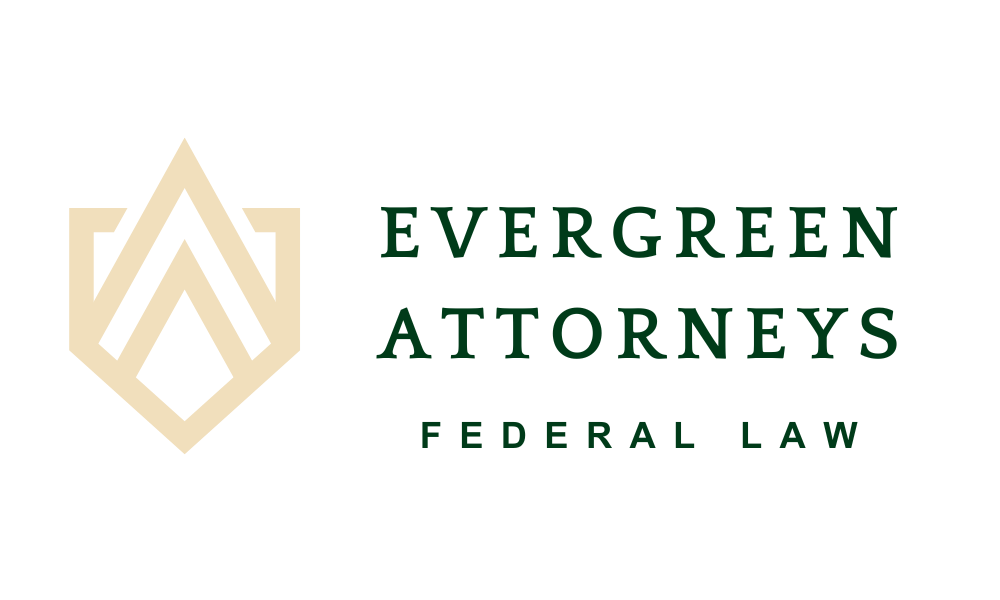Share
Share

Tampa White Collar Attorneys
Tampa is an extraordinary city that is experiencing tremendous growth. Tampa white collar attorneys know that the federal government devotes significant resources in terms of investigators and prosecutors to this important region in Florida. Evergreen Attorneys know all too well that often times individuals can find themselves accused of white collar crime when seemingly out of the blue. The Tampa federal criminal defense team at Evergreen Attorneys are ready to help when the federal government comes knocking on your door.
What makes Evergreen Attorneys Different from Other Firms?
White collar crime investigations are incredibly serious. Often times these cases involve the potential loss of not just freedom, but professional licenses, businesses, and millions of dollars on the line. The Tampa white collar crime lawyers at Evergreen Attorneys know that you and your family deserve the absolute best in attention to detail, legal expertise, and tenacity in your Tampa federal criminal defense case.
The dedicated team of lawyers at Evergreen Attorneys are here to help you defend your life, your reputation, and your future. If you or a loved one are charged with a federal white collar crime in Tampa, contact us today for a free consultation. Read more below about the importance Tampa white collar attorneys in your corner when everything is on the line.
White Collar Federal Criminal Defense is What We Do
Our law firm at Evergreen Attorneys focuses on white collar crime and federal criminal defense. We regularly defend accused professionals including doctors, lawyers, accountants, and CEOs across the country when they are charged with white collar crimes by the federal government.
Many other law firms will take all kinds of cases: divorce, real estate, personal injury. That’s simply not what we do. We handle federal criminal defense and lots of white collar crime accusations at Evergreen Attorneys. We do it at a high level because it’s what we do every single day in federal courts all around the country. If you are under investigation, charged with a crime, or needing to seek legal guidance because you are scared, contact the Tampa white collar lawyer team at Evergreen Attorneys today. We will discuss how to craft an aggressive defense plan to make sure that federal prosecutors are not deciding how the next years of your life are spent behind bars.
The Tampa white collar criminal defense lawyers at Evergreen Attorneys are here to help you find hope and a plan in your darkest hour.
What cases need a federal Tampa white collar attorney?
There are hundreds if not thousands of federal white collar crime offenses that the U.S. Government is able to prosecute. We have previously discussed in depth typical white collar crime cases in our other posts here.
Federal Bribery: 18 U.S.C. Section 201
In cases of bribery, an individual gives, receives, offers, or solicits something of value (e.g., money) with the aim to control and/or influence the actions and decisions of another person or entity. An example of bribery, which is oftentimes associated with politics, is a member of Congress accepting money or favors in return for their support of a certain policy. Federal bribery law imposes penalties for both actually making a bribe and for attempting to make a bribe. It also imposes penalties for the party making the bribe as well as the person receiving the bribe.
Section 201(b) prohibits bribing public officials in general. Essentially, you cannot offer anything of value to improperly influence an elected official or a public official to take a specified act. Federal bribery is a common white collar crime charge we see at Evergreen Attorneys.
Embezzlement: 18 U.S.C. Section 666
Federal prosecutors often bring charges claiming that someone improperly took money from another person or company. When embezzlement occurs, a person, business, or other entity misappropriates or misuses assets that have been entrusted to them, usually for personal benefit. To prove that embezzlement took place, the government must show four elements:
- there was a trust or fiduciary relationship between the defendant and victim;
- the property came into the care of the defendant by virtue of the defendant’s employment;
- the defendant’s dealings with the property amounted to a “fraudulent conversion” of the property for the defendant’s own use;
- the defendant acted with the intent to deprive the owner of the use of that property.
See U.S. Department of Justice Criminal Resource Manual, Section CRM 1000-1499. Embezzlement is one of the oldest federal white collar crimes under U.S. law. As a result, common embezzlement defenses are that the defendant did not act with the “specific intent” to deprive the alleged victim of their property.
Wire Fraud: 18 U.S.C. Section 1343
Federal wire fraud is both direct and complex at the same time. For example, we have an entire post dedicated to federal fraud here. And the U.S. Supreme Court recently explained at length that wire fraud charges can be proven even when the alleged victim suffered no economic loss. Read about the Kousisis decision on our website at this post. Tampa white collar criminal defense lawyers need to know wire fraud inside and out.
Here are the basics: federal wire fraud involve the acquiring of money, goods, or services through deceptive statements or promises.
In those cases, the United States Attorney’s Office (the government) must prove four elements to obtain a conviction:
(1) that the defendant voluntarily and intentionally devised or participated in a scheme to defraud another out of money; (2) that the defendant did so with the intent to defraud; (3) that it was reasonably foreseeable that interstate wire communications would be used; and (4) that interstate wire communications were in fact used
See Ninth Circuit Model Jury Instructions. Federal wire fraud is a powerful charge prosecutors can bring it carries up to a 20-year maximum prison sentence for each separate federal criminal charge. As Tampa federal criminal defense attorneys, we often see prosecutors bring wire fraud charges solely to try and gain leverage to obtain a plea to less serious crimes. Meaning, wire fraud charges are used often as a perverse “bargaining chip” by the government when many of the other charges carry less severe penalties.
Tampa white collar attorneys must know the ins and outs of wire fraud defense because this charge is used daily in federal criminal court.
Tax Evasion/Avoidance: 26 U.S.C. Section 7201
Knowingly and willfully attempting to evade the payment of taxes or the assessment of taxes is illegal under federal law. Tampa federal criminal defense tax lawyers know that 9 times out of 10 a tax defense will turn on the existence of willfulness. Unlike other areas of the law, in tax cases a good-faith but mistaken belief that your conduct was legal can be a valid defense. You can read all about the Cheek defense at this lengthy blog post and how it might be able to help defeat charges in your case.
Healthcare Fraud: 18 U.S.C. Section 1347
Healthcare fraud, Medicare fraud, Medicaid fraud, anti-kickback fraud, and other health profession crimes are prosecuted very seriously. The first thing that any decent Tampa federal criminal defense lawyer must know is that these crimes are the focus of the Tampa Bay U.S. Attorney’s Office.
What does that mean? Well, the U.S. Attorney’s Office in Tampa Bay is one of nine specific healthcare fraud task forces in the entire United States. That means that the office in Tampa spends significantly more time, money, and manpower in trying to investigate and prosecute hospitals, doctors, and other healthcare professionals for healthcare fraud.
Tampa White Collar Crime: Recent Healthcare Fraud Cases
Experienced Tampa federal criminal defense attorneys know that defending healthcare fraud charges is serious business. Just last year, 19 different Tampa white collar crime cases were filed by the Tampa healthcare fraud task force. Here is a brief summary of the cases from just the last year that were filed in Tampa involving federal healthcare fraud (note that the descriptions are from the DOJ website and often contain allegations not yet proven in court):
- W.B. (Spring Hill) was charged with conspiracy to defraud the United States and to pay and receive health care kickbacks in connection with a scheme to provide doctors’ orders to pharmacies, durable medical equipment (“DME”) companies, and laboratories in exchange for kickbacks, which led to at least $9 million in losses to Medicare. As alleged in the information, W.B. was the Chief Financial Officer of Call MD Plus, a telemedicine company that purported to offer software that enabled pharmacies, DME companies, and laboratories to connect their patients with telemedicine doctors who performed consultations. Call MD Plus allegedly obtained signed doctors’ orders by paying kickbacks to companies that had relationships with telemedicine doctors, and then sold the orders to the pharmacies, DMEs, and laboratories (sometimes through intermediary marketers and resellers), in exchange for kickbacks. The orders were then used to bill for medically unnecessary prescriptions and other items.
- E.C. (Parkland), R.C. ( Parkland), T.F. (Fort Lauderdale), and V.L.(Margate) were charged for their roles in a conspiracy to defraud the Medicare program, make false statements relating to health care matters, and offer and pay illegal kickbacks and bribes. They are also charged in a second conspiracy to commit wire and health care fraud and with related substantive counts concerning the falsification of records in the federal investigation leading to the indictment. The four charged, along with other conspirators, generated medically unnecessary physicians’ orders via a telemarketing operation for DME. Through the telemarketing operation, federal health care program beneficiaries’ personal identifying information and other health-related information was harvested to begin forming DME brace orders. The information related to the emerging brace orders was then transmitted to purported “telemedicine” vendors that, in exchange for a fee, paid illegal kickbacks and bribes to physicians who signed the orders, often without ever contacting the beneficiaries to conduct the required telehealth consultations. The fraudulent brace orders were then returned to the conspirators, who used the orders as support for bogus DME claims submitted to Medicare.
- G.H. (Tampa) was charged with conspiracy to commit wire fraud for contributing to the filing of fraudulent insurance claims for staged traffic crashes resulting in multiple payouts by insurance companies to a physical rehabilitation clinic in Tampa. C.H. worked at the clinic and was involved in recruiting individuals to seek treatment after staging traffic crashes. C.H. was paid approximately $52,000 for her role in the conspiracy.
- A.P. (Spring Hill) and C.S. (Tampa) were charged with conspiracy to commit wire fraud for their roles in submitting fraudulent insurance claims for staged traffic crashes. D.S. was also charged with wire fraud for causing the transmission of fraudulently obtained insurance funds. D.P. was the owner of a physical rehabilitation clinic in Tampa and recruited individuals to participate in staged traffic crashes and seek medical attention at his clinic. D.S. worked at the clinic and assisted patients from staged car accidents with completing insurance paperwork containing false statements. Additionally, D.S. was responsible for making cash payouts to individuals involved in the staged traffic crashes. As a result of this scheme, the defendants and co-conspirators obtained at least $4.7 million in fraudulently obtained proceeds from the offenses.
- P.F. (Coconut Creek) pleaded guilty to conspiring to solicit and receive kickbacks for referring Medicare beneficiaries for COVID-19 tests and to purchase and sell Medicare beneficiary identification numbers. According to court documents, P.F. obtained identifying information from Medicare beneficiaries for the purpose of sending them COVID-19 tests that they had not otherwise requested. He then sold the identifying information to medical providers for the purpose of shipping the COVID-19 tests to the beneficiaries and billing Medicare for the tests. P.F.’s actions caused the submission of approximately 84,600 fraudulent claims to Medicare, which resulted in reimbursements totaling approximately $7.9 million. As part of his plea, P.F. agreed to forfeit to the government a total of $1,266,025 of proceeds that he obtained during the scheme.
- M.F. (Ocala) was charged with 14 counts of wire fraud and 1 count of aggravated identity theft in connection with using the names and insurance policy information of 22 individuals without their knowledge or consent to overbill health insurance companies. The fraudulent overbillings resulted in a loss of at least $483,000.
- L.G.(Clearwater) and J.W. (60, Tampa) were charged by indictment for their roles in a conspiracy to solicit, steal, and misappropriate beneficiary funds from clients of the Center for Special Needs Trust Administration (CSNT). CSNT was a non-profit that managed funds for individuals with disabilities and other special needs, including those who received court awards, settlements, and other payments. As of February 2024, the indictment alleges, CSNT managed more than 2,100 special needs trusts containing approximately $200 million.
- L.H. (Seminole) was charged with one count of tampering with a consumer product in connection with her unlawfully acquiring and tampering with morphine at a hospital.
- P.P. ( Ocala) and S.D. (56, Gainesville) were charged with various counts of conspiracy, health care fraud, and paying kickbacks in connection with an alleged scheme to fraudulently bill Medicare over $8.6 million for medically unnecessary orthotic braces. According to the indictment, P.P. and S.D. owned and operated DME companies that offered and paid illegal kickbacks to their co-conspirators in exchange for signed doctors’ orders for medically unnecessary DME that were then billed to Medicare.
- R.R.(Tampa) was charged with one count of conspiracy to commit money laundering for his role in conducting financial transactions involving proceeds of mail fraud. R.R. was a chiropractor at a physical rehabilitation clinic in Tampa. His co-conspirators recruited individuals to stage traffic accidents, file false police reports related to the staged traffic crashes, and then seek treatment at the clinic where R.R. worked. R.R. performed evaluations on the recruited individuals and directed them to report high levels of pain in order to diagnose purported injuries and prescribe future treatments. In some instances, no evaluations were performed and Ramos still generated diagnoses to facilitate the filing of fraudulent insurance claims. R.R. also completed medical forms with prescriptions for DME based on the fake injuries. These false claims were submitted to insurance companies and resulted in the insurance companies sending payments to the clinic where R.R. worked. These funds were then used to compensate R.R. and the recruited individuals for their roles in the scheme. As a result of the conspiracy, R.R. obtained approximately $169,000.
- C.M. (Tarpon Springs) was charged with conspiracy to commit health care fraud and mail fraud, mail fraud, conspiracy to defraud the United States and to offer, pay, solicit, and receive health care kickbacks, violations of the Anti-Kickback Statute, and wire fraud in connection with a scheme to fraudulently bill Medicare, Medicare Advantage Plans, and TRICARE for more than $28 million for orthotic braces and to receive approximately $15 million in illegal kickbacks and bribes related to genetic testing. As alleged in the indictment, C.M. owned several DME companies that purchased doctors’ orders for braces. C.M. was also a marketer who generated and sold doctors’ orders for genetic testing. He also is charged for submitting a false Economic Injury Disaster loan application and aiding and abetting in the submission of a false Paycheck Protection Program loan. Previously, a boat purchased for over $600,000 and more than $1 million from an investment account were seized.
- A.O. (St. Petersburg) was charged for making a false statement in a passport application and theft of government funds. According to the indictment, A.O., a Nigerian citizen living in the United States, obtained two Social Security numbers by fraudulently claiming to be a United States citizen. Using these Social Security numbers, A.O. applied for, and received, benefits from the United States to which he was not entitled. As part of his scheme, A.O. obtained more than $2.2 million in Social Security Disability Insurance benefits and Medicare benefits.
- E.H. (Fort Myers) was charged with wire fraud and distributing and dispensing controlled substances in connection with an alleged scheme to deceive doctors into writing controlled substance prescriptions based on false pretenses. As alleged in the complaint, E.H. recruited unwitting doctors for his all-virtual pain clinic using a series of lies designed to induce them to work for him and to prescribe controlled substances, including oxycodone. These lies included that the pain clinic had a physical location (when in fact all operations during the pertinent periods were purely virtual), that patients were being physically examined by medical practitioners, such as nurse practitioners, before doctors were asked to prescribe, that there were long-term doctors with whom the patients had a standing relationship and that the temporary doctors were just refilling prescriptions as part of an established regimen of care, and that safeguards to prevent against drug abuse, such as urine screens, were being used. E.H.’s scheme resulted in the improper dispensing of more than 103,000 oxycodone pills.
We provide the list of cases above so that people facing Tampa federal healthcare fraud charges have an idea of the types of cases that get filed in Tampa federal court. We do not mean to say that we agree with these prosecutions. To the contrary, many times healthcare fraud cases seem to come from situations where professionals (doctors, nurses, etc.) simply trusted the wrong person (office manager, billing professional). But you need to arm yourself with the data about what cases are actually filed if you plan to defend yourself and win.
If you are facing a healthcare fraud investigation, you need a Tampa white collar attorney who will be proactive and willing to take strong action for you. You cannot sit back and wait for an indictment to be filed and hope for good results. Evergreen attorneys have experience fighting these types of charges. Don’t delay.
Who are the federal judges that will hear my Tampa white collar crime case?
Federal judges come in two stripes. First, you have the U.S. District Court judges who are appointed for life and must be nominated by the President and confirmed by the U.S. Senate. Second, are the U.S. Magistrate judges who are appointed on rotating terms and do not receive lifetime tenure.
Tampa Bay Federal Court Judges
The Tampa Bay division of the U.S. District Court for the Middle District of Florida has 5 active U.S. District Court Article III judges and 8 active U.S. Magistrate Judges, with 7 Senior Article III judges. Senior judges are essentially semi-retired judges who no longer take on new cases, but may from time to time help out with active dockets. Here are the Tampa federal judges:
- Honorable Thomas Barber
- Appointed July 11, 2019. Nominated by President Trump
- Chambers Phone: 813-301-6160
- Chambers email: c[email protected]
- University of Pennsylvania, J.D. 1992; University of Florida, B.A. 1989
- Website: https://www.flmd.uscourts.gov/judges/thomas-barber
- Honorable William Jung
- Appointed September 10, 2018. Nominated by President Trump
- Chambers Phone: 813-301-5220
- Chambers email: not provided
- Vanderbilt University, B.A. 1980; University of Illinois, J.D. 1983
- Website: https://www.flmd.uscourts.gov/judges/william-jung
- Honorable Steven Merryday
- Appointed February 10, 1992. Nominated by George H.W. Bush
- Chambers Phone: (813) 301-5001
- Chambers email: not provided
- University of Florida, B.A. 1972; University of Florida, J.D. 1975
- Website: https://www.flmd.uscourts.gov/judges/steven-merryday
- Honorable Kathryn Kimball Mizelle
- Appointed November 20, 2020. Nominated by President Trump
- Chambers Phone: not provided
- Chambers Email: not provided
- Covenant College, B.A. 2009; University of Florida, J.D. 2012
- Website: https://www.flmd.uscourts.gov/judges/kathryn-kimball-mizelle
- Honorable Mary Scriven
- Appointed September 30, 2008. Nominated George W. Bush
- Chambers Phone: (813) 301-5710
- Chambers Email: not provided
- Duke University, B.A. 1983; Florida State College of Law, J.D. 1987
- Website: https://www.flmd.uscourts.gov/judges/mary-scriven
A list of the Tampa Bay Magistrate judges appears below. You can find links to their respective biographies and practice standards here: https://www.flmd.uscourts.gov/judges/all/tampa
- Natalie Hirt Adams
- Sean Flynn
- Lindsay Saxe Griffin
- Elizabeth Jenkins
- Anthony Porcelli
- Amanda Arnold Sansone
- Christopher Tuite
- Thomas Wilson
How does your Tampa federal judge view white collar crime defendants? Contact Evergreen Attorneys if you want to get the best white collar defense available based on your unique circumstances.
Contact Tampa White Collar Criminal Defense Lawyers Today
White collar crime cases are simply different. You deserve, not need, deserve a federal white collar lawyer who knows what it takes to win these cases. Evergreen Attorneys are proud to defend white collar cases in Tampa and are ready to talk to you about your case today.
If you are or a loved one are seeking assistance with a federal case, contact the Tampa white collar lawyers at Evergreen Attorneys today at (303) 948-1489 or [email protected] for a free consultation.
Zachary Newland
Zachary Newland is an attorney, author, aspiring BBQ connoisseur, and mediocre skier. Zachary's law practice is focused on federal criminal defense, federal appellate advocacy including post-conviction remedies, civil rights litigation, and complex trial work. Zach lives in Evergreen, Colorado with his family. You can reach Zach at [email protected] to discuss your case or call him directly at 303-948-1489.
STAY IN THE LOOP













